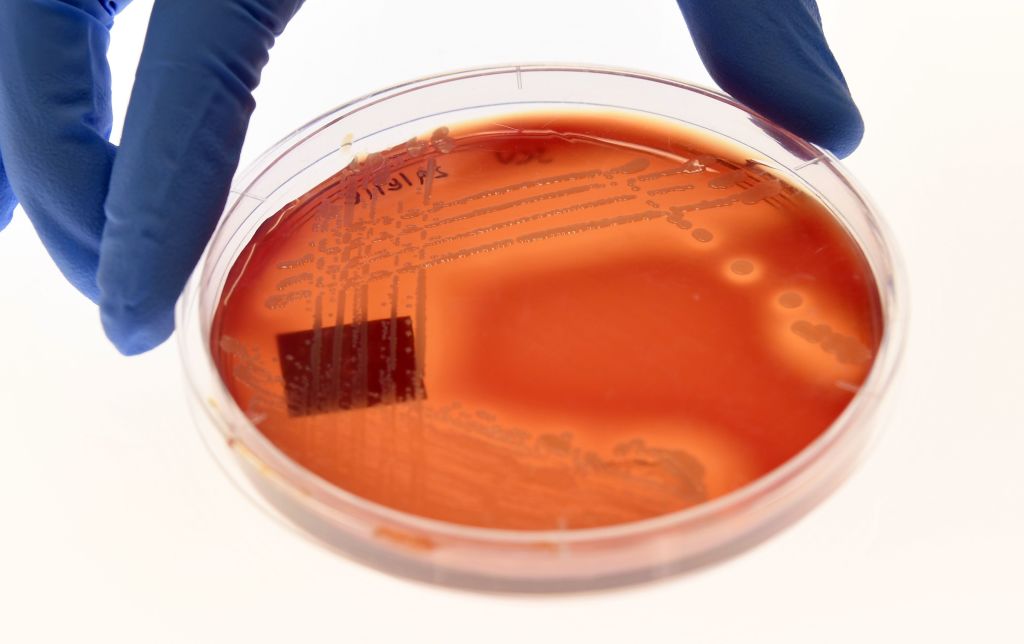Researchers may have solved the world's drug-resistant bacteria problem using artificial intelligence


A free daily email with the biggest news stories of the day – and the best features from TheWeek.com
You are now subscribed
Your newsletter sign-up was successful
Researchers at MIT reported Thursday that they have harnessed artificial intelligence to identify a completely new antibiotic compound that killed all but one of the antibacterial-resistant pathogens they tested it on. Drug-resistant bacteria are a large and growing problem, causing 2.8 million infections and 35,000 deaths in the U.S. each year and more in developing countries, STAT News reports. The computer learning model developed at MIT, described in the journal Cell, has the potential to identify many new types of antibiotics.
The researchers named the compound halicin, after HAL, the initially useful, eventually murderous sentient computer in 2001: A Space Odyssey. They also discovered eight more promising antibacterial compounds, two of which appear very powerful. They tried out halicin on mice and plan to work with a nonprofit or drugmaker to see if it's effective and safe in humans.
The MIT team's machine-learning model independently looked for certain properties — in this case, the ability to kill E. coli and not harm humans — among about 2,500 molecules in a drug repurposing database. Halicin was originally considered as a treatment for diabetes.
The Week
Escape your echo chamber. Get the facts behind the news, plus analysis from multiple perspectives.

Sign up for The Week's Free Newsletters
From our morning news briefing to a weekly Good News Newsletter, get the best of The Week delivered directly to your inbox.
From our morning news briefing to a weekly Good News Newsletter, get the best of The Week delivered directly to your inbox.
The model helps researchers find "leads among chemical structures that in the past we wouldn't have even hallucinated that those could be an antibiotic," Nigam Shah, a Stanford professor of biomedical informatics who wasn't involved in the study, told STAT News. "To use a crude analogy, it's like you show an AI all the different means of transportation, but you've not shown it an electric scooter," he added. "And then it independently looks at an electronic scooter and says, 'Yeah, this could be useful for transportation.'"
In this case, said MIT medical engineering professor James Collins, the platform "revealed this amazing molecule which is arguably one of the more powerful antibiotics that has been discovered." Collins is a senior author of the study along with MIT computer scientist Regina Barzilay. You can read more about their work at STAT News and MIT.
A free daily email with the biggest news stories of the day – and the best features from TheWeek.com
Peter has worked as a news and culture writer and editor at The Week since the site's launch in 2008. He covers politics, world affairs, religion and cultural currents. His journalism career began as a copy editor at a financial newswire and has included editorial positions at The New York Times Magazine, Facts on File, and Oregon State University.
-
 What is the endgame in the DHS shutdown?
What is the endgame in the DHS shutdown?Today’s Big Question Democrats want to rein in ICE’s immigration crackdown
-
 ‘Poor time management isn’t just an inconvenience’
‘Poor time management isn’t just an inconvenience’Instant Opinion Opinion, comment and editorials of the day
-
 Bad Bunny’s Super Bowl: A win for unity
Bad Bunny’s Super Bowl: A win for unityFeature The global superstar's halftime show was a celebration for everyone to enjoy
-
 TikTok secures deal to remain in US
TikTok secures deal to remain in USSpeed Read ByteDance will form a US version of the popular video-sharing platform
-
 Unemployment rate ticks up amid fall job losses
Unemployment rate ticks up amid fall job lossesSpeed Read Data released by the Commerce Department indicates ‘one of the weakest American labor markets in years’
-
 US mints final penny after 232-year run
US mints final penny after 232-year runSpeed Read Production of the one-cent coin has ended
-
 Warner Bros. explores sale amid Paramount bids
Warner Bros. explores sale amid Paramount bidsSpeed Read The media giant, home to HBO and DC Studios, has received interest from multiple buying parties
-
 Gold tops $4K per ounce, signaling financial unease
Gold tops $4K per ounce, signaling financial uneaseSpeed Read Investors are worried about President Donald Trump’s trade war
-
 Electronic Arts to go private in record $55B deal
Electronic Arts to go private in record $55B dealspeed read The video game giant is behind ‘The Sims’ and ‘Madden NFL’
-
 New York court tosses Trump's $500M fraud fine
New York court tosses Trump's $500M fraud fineSpeed Read A divided appeals court threw out a hefty penalty against President Trump for fraudulently inflating his wealth
-
 Trump said to seek government stake in Intel
Trump said to seek government stake in IntelSpeed Read The president and Intel CEO Lip-Bu Tan reportedly discussed the proposal at a recent meeting
